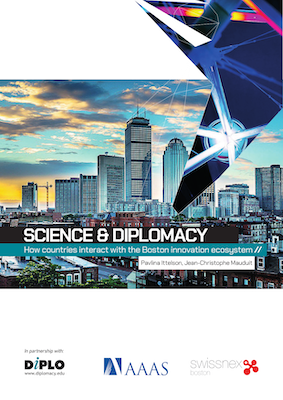Note: This article is a part of the publication ‘Science diplomacy capacity development: Reflections on Diplo’s 2021 course and the road ahead’
As the world is experiencing breakthroughs in science and technology, such as advanced AI, genome editing, quantum computing, or synthetic biology, at an unprecedented pace, the mandate of Geneva Science and Diplomacy Anticipator (GESDA) is to accelerate the use of the opportunities and avoid their undesirable consequences. This will require rethinking and reorganising the complex relationships and interactions between scientists, politicians, diplomats, entrepreneurs, and citizens, whose agendas, worldviews, mindsets, experiences and responsibilities are all very different, and sometimes contradictory, as demonstrated by the COVID-19 pandemic.
Thus, GESDA’s module on ‘Anticipation of future science policy interactions and challenges’ explores new frameworks that will be needed for global governance, multilateralism, and anticipatory science diplomacy in a world increasingly shaped by exponential technological advances. The module is adapted from the GESDA ‘Science Breakthrough Radar’ and the GESDA ‘Scientific Anticipatory Briefs’ (GESDA, n.d.,a); GESDA, n.d.,b).
The module first introduces three fundamental questions:
Who are we? What does it mean to be human in the age of robots, gene-editing, and augmented reality? New scientific discoveries are radically changing the nature of how we perceive ourselves as human beings. Advanced synthetic biology and gene-editing techniques have the potential to modify the biological fabric of our bodies. Advances in cognitive neurosciences, brain-machine interfaces, and neural technologies may provide access to our inner thoughts in the near future and allow others to steer our behaviours. The power of quantum technologies and advanced artificial intelligence might provide new understandings of consciousness and the origins of life.
How are we going to live together? Which deployment of technology can help reduce inequality and foster inclusive development and well-being? Research on ageing might extend the lifespan of people and raise new questions about equitable access to science or the intergenerational contract of our societies. Advanced AI might lead to further automatisation and fundamentally change the nature of labour and political participation.
How can we assure humanity’s well-being while also sustaining the health of our planet? How can we supply the world population with the necessary food and energy, and still regenerate our planet? Advanced biology combined with quantum computing might provide solutions to poor health or hunger. Well thought out deployment of technology can help reduce inequality and foster inclusive development and well-being.
After this, we looked at two concrete examples for the need of anticipatory Science Diplomacy: first, human augmentation, and second, eco-regeneration and geoengineering, before reflecting upon the future of Science Diplomacy and the new tools that will be needed for its practice and applications. The final section also addresses the ethical challenges of anticipation and the challenges for the future of multilateralism.
The course participants grappled with the dilemmas posed by scientific and technological advancements and the balance between opportunities and risks. This dialogue should be continuously encouraged between the scientific and diplomatic communities, because as these breakthroughs are made, it is not possible to know today how they will synergistically interact or converge. It is very hard to anticipate exactly what the near and longer-term challenges are going to be.
Participants highlighted the enormous challenge we face in the science-policy dialogue about how to shape technological development towards positive outcomes. For example, how to manage the undesired societal impacts and risks of allowing certain technologies to move forward, while not stifling innovation, and leaving no one behind. Who decides what is beneficial and for whom? How do we create a joint language and start the broader societal and political debate around these emerging topics in relation to fundamental and existential questions?
While this module focuses on advances in environmental, biomedical sciences and technological innovations, it is equally important to consider cutting-edge thinking and to anticipate developments in social science and the humanities. Charting issues such as future social innovations and social structures, advances in international relations theory and geopolitics, or innovation in economic thought, alongside more ‘technological’ breakthroughs, will create a comprehensive vision of a future and provide the information needed to anticipate and design positive solutions for humankind.








